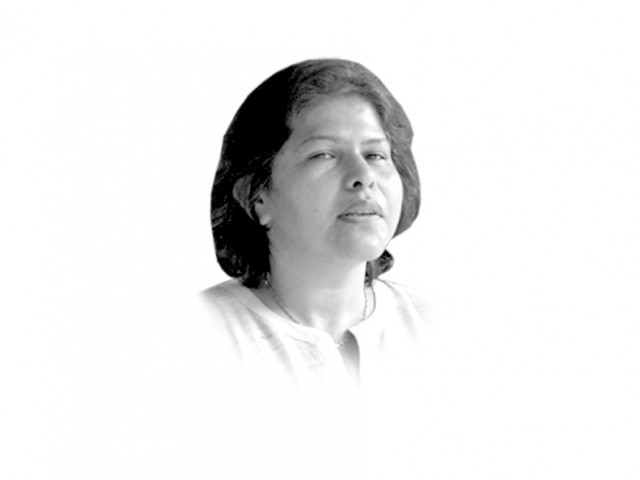Win the war not just the battle
It will be almost impossible to fight this war without breaking the edifice of extremist ideology

The new administrative-political structure will be used to implement a counterterrorism policy. In fact, the emphasis of the National Action Plan (NAP) appears to be on counterterrorism and this is where all attention will be focused. The initial eight-point formula that was later expanded to cover other issues — ranging from controlling terror financing to curbing sectarian violence — are issues which may not form the centre stage of the new plan. But real life is not like the Pakistani movie Waar, in which military and intelligence commandoes, all dressed up and behaving like CIA agents, gun down all the bad guys. We are certainly not like the US, which emphasised fire power because it could afford to. For America, the enemy was an outsider attacking the US mainland. In our case, the enemy sits right in our midst. It has the tremendous capacity to go underground when the need arises and is consistent in its mission. But then, many including those in the military believe that these people are also outsiders. Since Mullah Fazlullah was behind the attack, there is a high possibility that an enemy funded him. Members of the larger security community or the just-born military strategists argue that this is part of the great game. Even if that may be the case, the issue is that Fazlullah was once an insider and has greater access to and connection with many other insiders who have the same ideology. The only thing that makes Fazlullah different from those who are still being kept in the heartland of Punjab is that the latter are not fighting the state yet.
The problem is that many, who have suddenly ducked and become less noticeable, have a similar ideology. For instance, one of the Punjabi Taliban leaders, Asmatullah Muavia, agreed not to attack Pakistan, but did he also abandon his ideology? We are talking about people who are not fighting for some territorial demand but for an ideology, which they believe is ordained by God. And let’s be very clear on one thing: any argument pertaining to the mainstreaming such people or changing their views through creating a new narrative does not work for them. The Punjab government had started a de-radicalisation programme, picking people up and putting them through technical training. Once trained, these people were provided small loans to set up businesses. The idea being to provide people jobs and take away their reason to fight. The approach worked for those who had accidentally fallen on this path but then there were some limitations as well. The shortcomings of this project were two-fold. First, it used as a standard formula for all without assessing what a person was suitable for. For instance, in South Punjab, most were trained to become electricians when they did not all have the desire to pursue this work. Second, the programme has totally failed in weaning away the hard-brand radical/jihadi, who continued to believe in his philosophy. In fact, some used the training and opportunity to expand their influence, which was used to capture more young men. There was no de-radicalisation component. It is certainly needed even if it may not work in all cases. There are many amongst this army of jihadis who will not budge. They will have to be fought; otherwise, not fighting them will eventually increase the cost for the state at some later stage.
It is interesting to note that the extended NAP sort of deviated from the initial assessment that under the circumstances, only counterterrorism could be done. The new version has counter-extremism built into it. Unfortunately, this does not seem to be backed by any commitment from the government. It was just the other day that an Ahmadi got killed after remarks on a show conducted by a popular televangelist. Didn’t the prime minister say that the state will provide security to its minorities too? Moreover, can the state afford to watch silently while non-state actors threaten its citizens as it happened in the case of Jibran Nasir?
As mentioned earlier, it will be almost impossible to fight this war without breaking the edifice of extremist ideology. Battles can be won but wars lost if decision-makers don’t take a long-term perspective. This is exactly what happened with us even during the Kargil War. Now that the military and civilian leaderships are all part of one happy family, they must calculate the larger cost of not preparing for the war. Whether there are sectarian issues, blasphemy, carrying the burden of the Muslim ummah on their shoulders, or fighting the ‘great game’, these are all tied up in the same ideological thread.
Last, but not the least, instead of leaving all the planning to bureaucrats for designing the NAP formula, the government might consider holding broader consultations with the civil society. It is by standing together that can help us win.
Published in The Express Tribune, January 1st, 2015.
Like Opinion & Editorial on Facebook, follow @ETOpEd on Twitter to receive all updates on all our daily pieces.















COMMENTS
Comments are moderated and generally will be posted if they are on-topic and not abusive.
For more information, please see our Comments FAQ